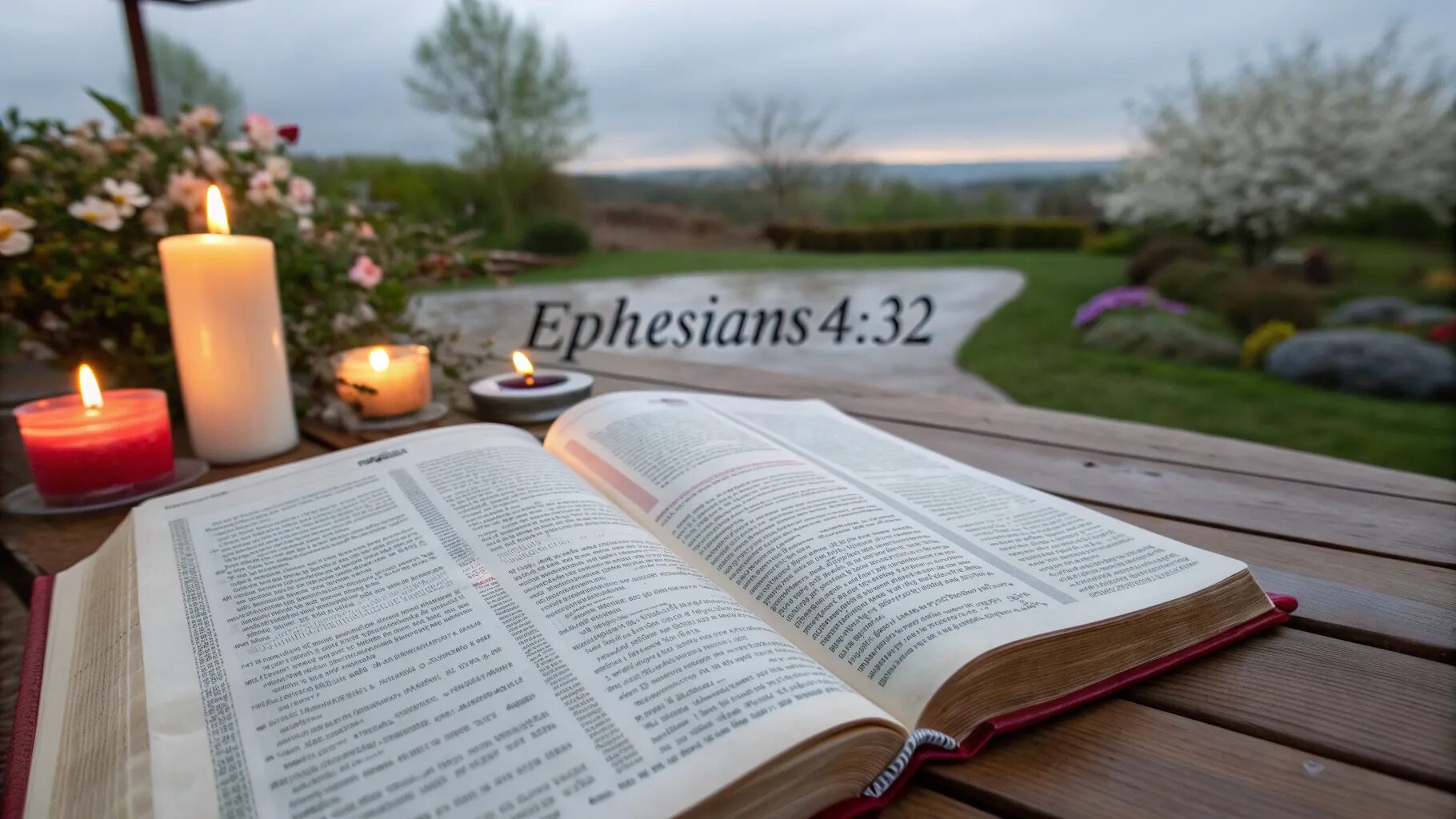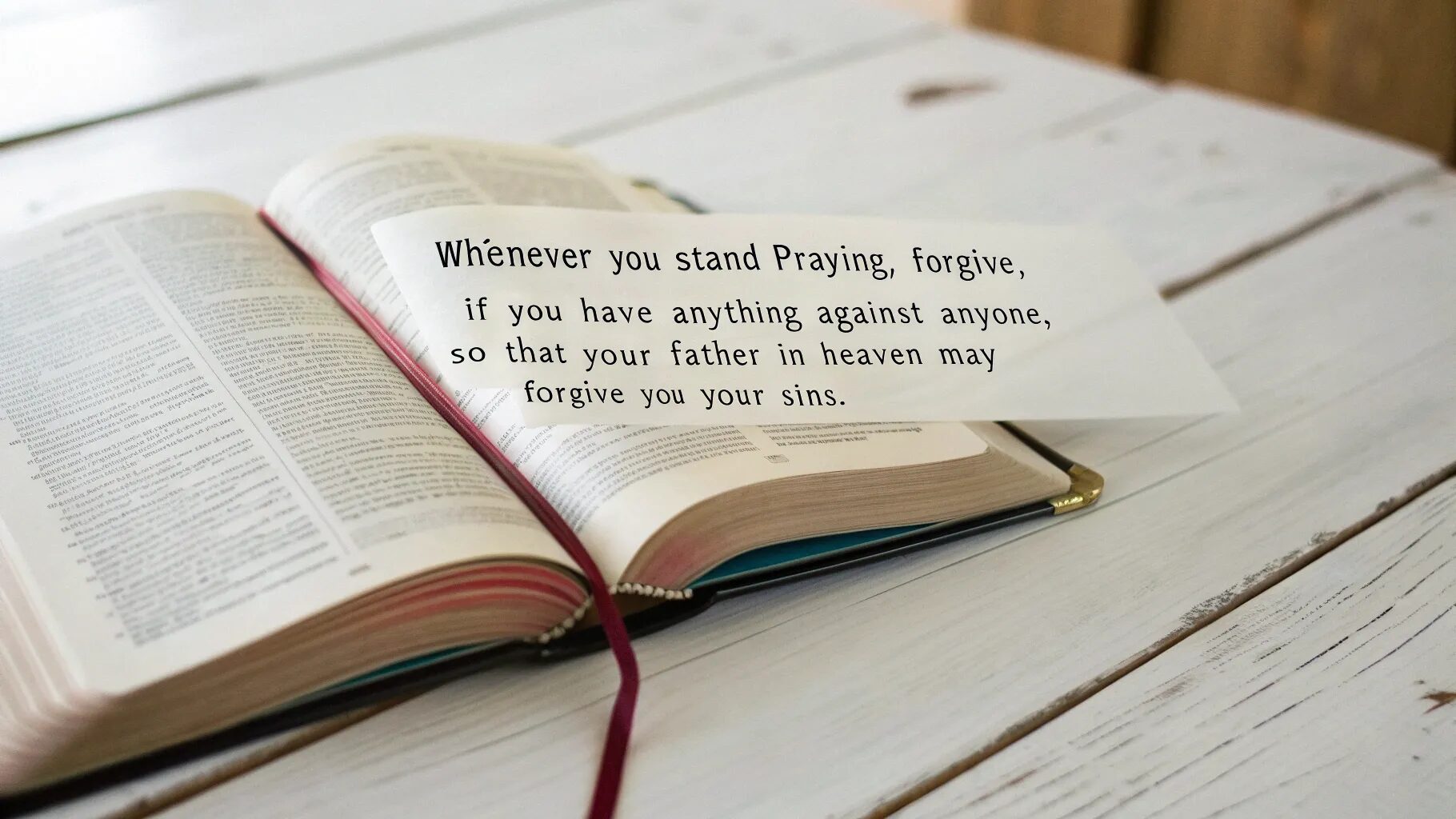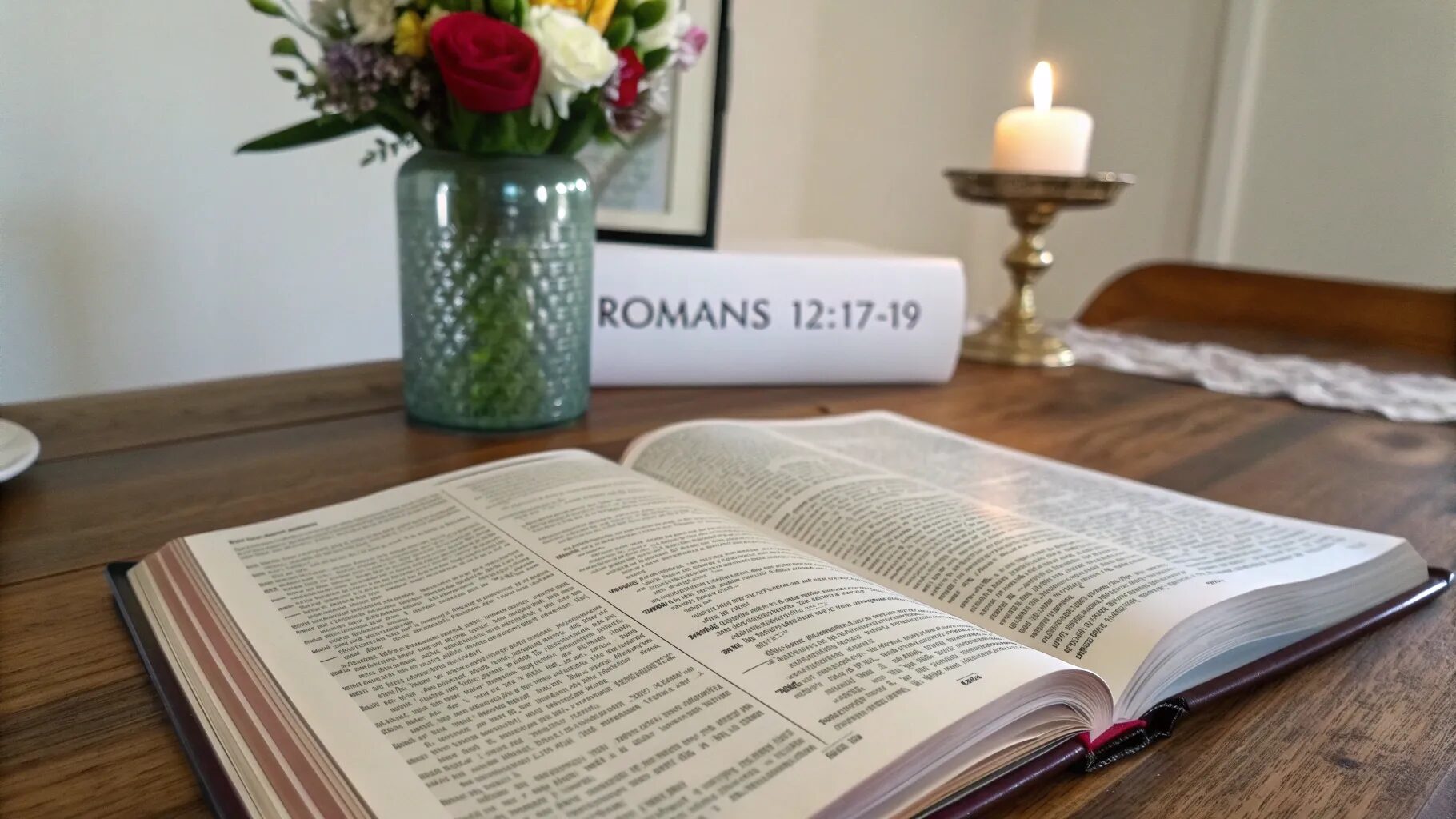Bible Verses About Forgiving Others: Powerful Lessons and Why They Matter

Forgiveness is one of the most profound themes in the Bible, offering us a blueprint for healing relationships and experiencing God’s mercy in our daily lives. As shared by Knowing the Bible, understanding bible verses about forgiving others is essential—not just for spiritual growth but for fostering peace and compassion in our communities. Below, we explore some of the most impactful Scriptures about forgiveness, diving into their meaning and the valuable takeaways they hold for us today.
1. Ephesians 4:32 – The Call to Kindness and Tenderhearted Forgiveness
“And be ye kind one to another, tenderhearted, forgiving one another, even as God for Christ’s sake hath forgiven you.”
This verse from Apostle Paul is a beautiful reminder that forgiveness should be rooted in kindness and compassion. It encourages us to mirror the forgiveness God has extended to us through Christ. Forgiveness here is not a one-time event; it is a continual process that renews our relationships and reflects the mercy we have received. When we forgive, we embody a spirit of love that heals wounds and nurtures unity.

2. Colossians 3:13 – Patience and Forgiveness as Christian Essentials
“Forbearing one another, and forgiving one another, if any man have a quarrel against any: even as Christ forgave you, so also do ye.”
Paul highlights the necessity of patience in the Christian community. Forgiveness isn’t always easy, especially when hurt runs deep. Yet, this verse challenges us to let go of grudges and forgive as Christ forgave us—completely and unconditionally. This is a powerful call to reflect Christ’s forgiving nature in our daily interactions, fostering harmony among believers.
3. Matthew 6:14-15 – The Reciprocity of Forgiveness
“For if ye forgive men their trespasses, your heavenly Father will also forgive you: But if ye forgive not men their trespasses, neither will your Father forgive your trespasses.”
Jesus teaches us here about the reciprocal relationship between forgiving others and receiving God’s forgiveness. Our willingness to forgive directly impacts our own experience of God’s mercy. This verse stresses that forgiveness is not optional for believers—it is integral to our spiritual walk and our connection with God.

4. Luke 17:3-4 – Forgiving Repeatedly Without Limit
“Take heed to yourselves: If thy brother trespass against thee, rebuke him; and if he repent, forgive him. And if he trespass against thee seven times in a day, and seven times in a day turn again to thee, saying, I repent; thou shalt forgive him.”
Jesus acknowledges the challenge of forgiveness by emphasizing its ongoing nature. Forgiving someone once is often difficult; forgiving them repeatedly requires even greater grace. This passage teaches us that forgiveness comes with responsibility—correcting wrongs and being open-hearted to forgive again and again, just as God’s mercy toward us is endless.
5. Mark 11:25 – Forgiveness as a Prerequisite for Prayer
“And when ye stand praying, forgive, if ye have ought against any: that your Father also which is in heaven may forgive you your trespasses.”
Here, Jesus links forgiveness directly with prayer, suggesting that an unforgiving heart can hinder our relationship with God. This verse reminds us that forgiveness is more than a moral duty—it is essential for a genuine connection with God. When we forgive, we open ourselves to receive God’s grace fully, enhancing our spiritual life.

6. 2 Corinthians 2:7 – Forgiveness as a Path to Healing and Restoration
“So that contrariwise ye ought rather to forgive him, and comfort him, lest perhaps such a one should be swallowed up with overmuch sorrow.”
Paul shares a profound insight into the restorative power of forgiveness. When someone who has wronged the community shows remorse, forgiveness becomes a tool for healing rather than punishment. This verse encourages balancing justice with mercy, aiming to rebuild broken relationships instead of deepening wounds. Forgiveness here is an act of compassion that restores hope and peace.
7. Romans 12:17-19 – Rejecting Revenge and Trusting God’s Justice
“Recompense to no man evil for evil. Provide things honest in the sight of all men. If it be possible, as much as lieth in you, live peaceably with all men. Dearly beloved, avenge not yourselves, but rather give place unto wrath: for it is written, Vengeance is mine; I will repay, saith the Lord.”
Paul encourages believers to resist the urge for revenge and to pursue peace instead. Forgiveness means trusting God to enact justice in His perfect timing. This teaching promotes a heart that forgives and leaves judgment to God, fostering peace and harmony within the community. It’s a radical call to respond to evil with grace and patience.

8. Matthew 18:21-22 – Forgiveness Without Limits
“Then came Peter to him, and said, Lord, how oft shall my brother sin against me, and I forgive him? till seven times? Jesus saith unto him, I say not unto thee, Until seven times: but, Until seventy times seven.”
Peter’s question about the limits of forgiveness reveals a natural human tendency to count offenses. Jesus’ response shatters this notion by teaching that forgiveness should be limitless, reflecting the boundless forgiveness God offers us. This verse calls us to maintain a forgiving spirit no matter how many times we are wronged—a profound lesson in grace and mercy.
9. 1 John 1:9 – The Assurance of God’s Forgiveness and Cleansing
“If we confess our sins, he is faithful and just to forgive us our sins, and to cleanse us from all unrighteousness.”
This verse offers tremendous encouragement that God is always ready to forgive and purify us when we confess our sins. Forgiveness here is transformative—it not only restores our relationship with God but also renews us internally. It reminds us that confession and forgiveness are the first steps toward spiritual healing and growth.

10. James 5:16 – The Power of Confession, Prayer, and Mutual Forgiveness
“Confess your faults one to another, and pray one for another, that ye may be healed. The effectual fervent prayer of a righteous man availeth much.”
James emphasizes the communal aspect of forgiveness. Confessing our faults and praying for one another strengthens the bonds within the community and promotes collective healing. Forgiveness is not just a personal journey but a shared experience where grace and understanding help to build a stronger, more compassionate community.
Why Knowing These Bible Verses About Forgiving Others Matters
Understanding and applying these bible verses about forgiving others is essential for living a life that reflects Christ’s love and mercy. Forgiveness breaks the chains of bitterness and allows us to experience freedom and peace. It fosters reconciliation, healing, and restores broken relationships—both with God and with others.
Moreover, forgiveness is a continuous process. It’s not always easy, especially when offenses are deep or repeated. But these Scriptures remind us that forgiveness is a choice we make daily, inspired by the limitless forgiveness God has extended to us.
By embracing forgiveness, we align ourselves with God’s will, deepen our spiritual lives, and contribute to a more peaceful and loving community. Let these verses inspire you to cultivate a heart that readily forgives, experiences God’s mercy, and spreads grace wherever you go.
Final Thoughts
Forgiveness is a cornerstone of the Christian faith, woven intricately through Scripture as a vital practice for believers. The Bible calls us not only to forgive but to do so with kindness, patience, and without limit. It challenges us to reject revenge, trust God’s justice, and pursue peace.
As you reflect on these powerful Bible verses about forgiving others, remember that forgiveness is a gift you give yourself and others. It frees you from the burden of anger and opens the door to healing and restoration. May these Scriptures inspire you to walk in forgiveness daily and experience the boundless love and mercy of Christ in your life.





